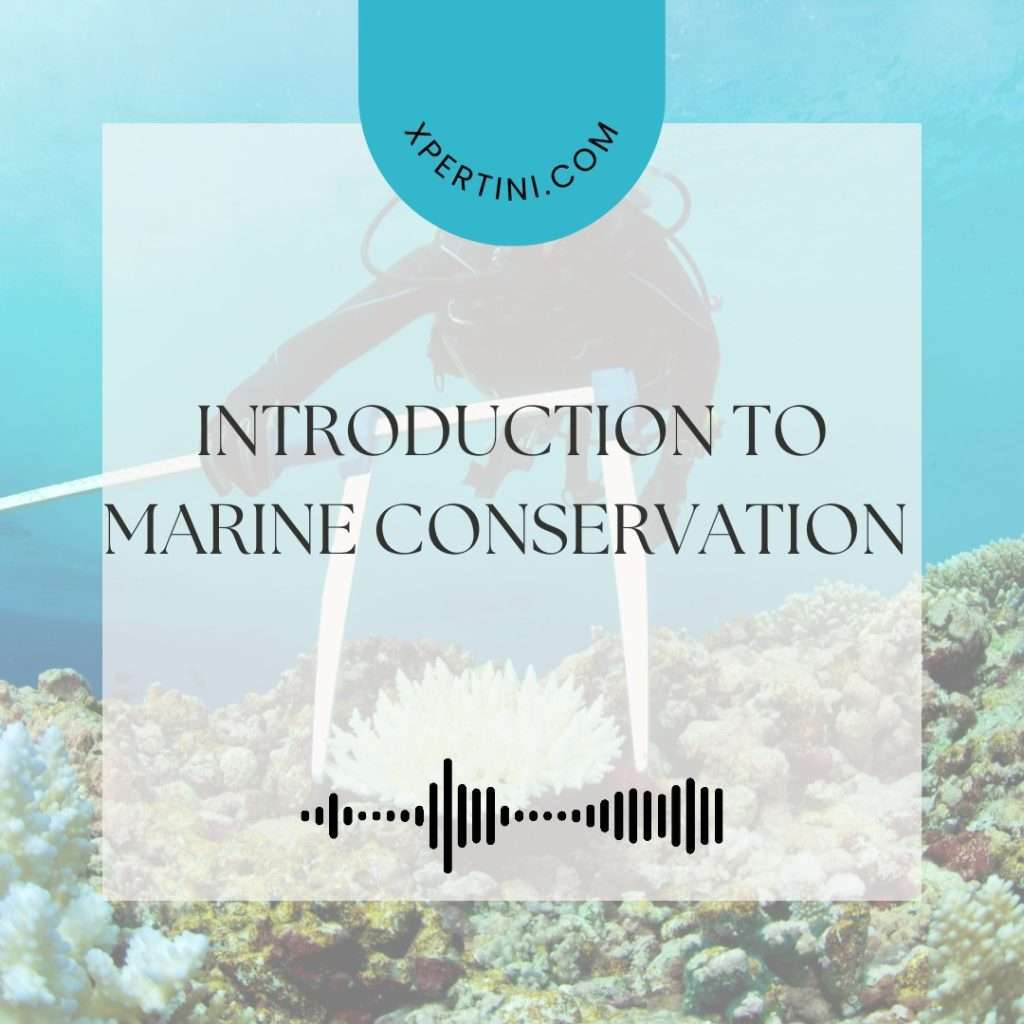Introduction to Marine Conservation
Course Summary
In this comprehensive course on marine conservation, we delve into the world of preserving and protecting our oceans. Throughout the lessons, we explore the multifaceted challenges facing marine ecosystems and the diverse strategies employed to mitigate these threats. From the impacts of climate change to the importance of community engagement, each topic is dissected with precision and clarity.
We begin by examining the foundations of marine conservation, outlining the pressing issues and the urgent need for action. Through an exploration of marine pollution, overfishing, and habitat destruction, learners gain insight into the complexities of marine conservation efforts. Furthermore, we analyze the role of marine protected areas in safeguarding biodiversity and promoting sustainable management practices.
Moving forward, the course delves into the field of climate change and its profound effects on marine ecosystems. Learners uncover the interconnectedness between climate change and ocean conservation, exploring adaptation and mitigation strategies to address these challenges effectively. Additionally, we investigate the principles of sustainable fisheries management, highlighting the importance of responsible practices in ensuring the long-term viability of fish stocks.
One of the key pillars of effective marine conservation is community engagement, which forms the focal point of our exploration in later lessons. By understanding the significance of stakeholder involvement and examining real-world examples of community-based conservation initiatives, learners gain valuable insights into the collaborative efforts driving positive change in marine conservation.
Furthermore, the course offers a glimpse into the diverse career opportunities available in the field of marine conservation. From marine biologists to conservation scientists, learners discover the range of roles and responsibilities within this field. Essential skills and qualifications are outlined, empowering aspiring conservationists to embark on fulfilling career paths with confidence.
In summary, this course equips learners with the knowledge, skills, and inspiration needed to become effective stewards of our oceans. By fostering a deeper understanding of marine conservation principles and practices, participants are empowered to contribute meaningfully to the preservation of our planet’s most precious ecosystems.
Course Overview
This course provides a foundational understanding of marine conservation, emphasizing its significance in preserving the health and biodiversity of our oceans. Students will explore key concepts, methodologies, and challenges within the field, equipping them with the knowledge to contribute to marine conservation efforts.
Course Objectives
Understand the importance of marine conservation in preserving biodiversity and ecosystem services.
Identify major threats to marine environments and species, including pollution, overfishing, habitat destruction, and climate change.
Gain familiarity with key principles, strategies, and tools used in marine conservation.
Explore case studies and examples of successful marine conservation initiatives.
Develop critical thinking skills to evaluate the effectiveness of different conservation approaches.
Appreciate the interconnectedness between marine conservation and global sustainability.
Recognize the roles of various stakeholders, including governments, NGOs, scientists, and local communities, in marine conservation efforts.
Understand the interactions and socio-economic implications of marine conservation actions.
Explore emerging trends and innovations in marine conservation research and practice.
Develop a personal commitment to promoting marine conservation in professional and everyday contexts.
Course Outcomes
Define key terms and concepts related to marine conservation.
Identify and describe common threats to marine ecosystems.
Analyze case studies of successful marine conservation projects.
Apply principles of sustainable resource management to marine environments.
Evaluate the effectiveness of different conservation strategies.
Discuss the socio-economic implications of marine conservation efforts.
Collaborate effectively in group projects related to marine conservation.
Propose innovative solutions to pressing marine conservation challenges.
Communicate scientific findings and conservation messages to diverse audiences.
Reflect on their personal values and attitudes towards marine conservation.
Course Audience
Students interested in pursuing careers in marine biology, conservation science, or environmental management.
Professionals working in marine-related industries, such as fisheries, tourism, or coastal development.
Environmental activists and advocates seeking to deepen their understanding of marine conservation issues.
Educators and policymakers aiming to incorporate marine conservation principles into their work.

